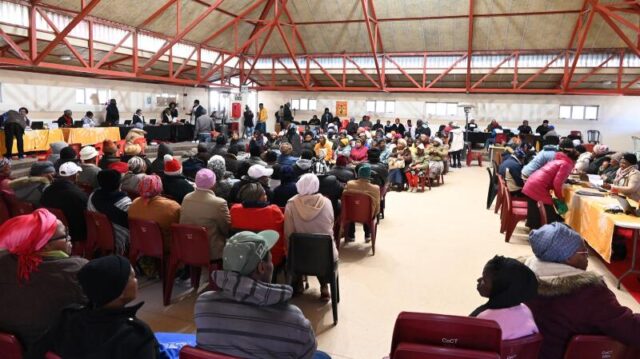OPINION: Government needs a radical switch in its thinking from handouts to hand-ups, and from poverty alleviation to wealth creation and economic inclusion, writes Taariq Halim.
IN 1999, just over 2.5 million people were receiving social grants. Today that number has increased to over 18 million people.
This was testimony to government’s advancement of the human rights of South Africans, President Cyril Ramaphosa reflected in his weekly newsletter, as Human Rights Month draws to a close.
Add another 11 million drawing the R350 Social Relief of Distress Grant (SRD Grant), and that number effectively stands at 29 million – nearly half of the country’s population.
In his State of the Nation Address last month, Ramaphosa said government was working on providing an additional basic income support for the unemployed.
This “achievement” by government is nothing to boast about, in fact it is a gross failure to redress poverty and historical imbalances.
According to a World Bank report, “South Africa is the most unequal country in the world, with race playing a determining factor in a society where 10% of the population owns more than 80 percent of the wealth”.
The report was published in 2022, not during the height of apartheid.
Economists warn that this is an unsustainable economic situation, as soon there will not be enough taxpayers to fund the growing welfare bill.
There are currently just over 5 million income tax payers in South Africa and this number has been shrinking since 2012.
With unemployment currently at an unacceptably high 35.6%, these worrying numbers tell the story of a welfare state that has lost the battle against poverty and unemployment – and running on empty.
What government needs is a radical switch in its thinking – from handouts to hand-ups.
From poverty alleviation to wealth creation and economic inclusion.
From reliance on jobs to creation of employment through small business development and entrepreneurship.
There must be a national and cultural mindset shift, and this must start and be taught at school.
* Taariq Halim is the editor of the Cape Argus newspaper.
** The views expressed here are not necessarily those of the DFA.








